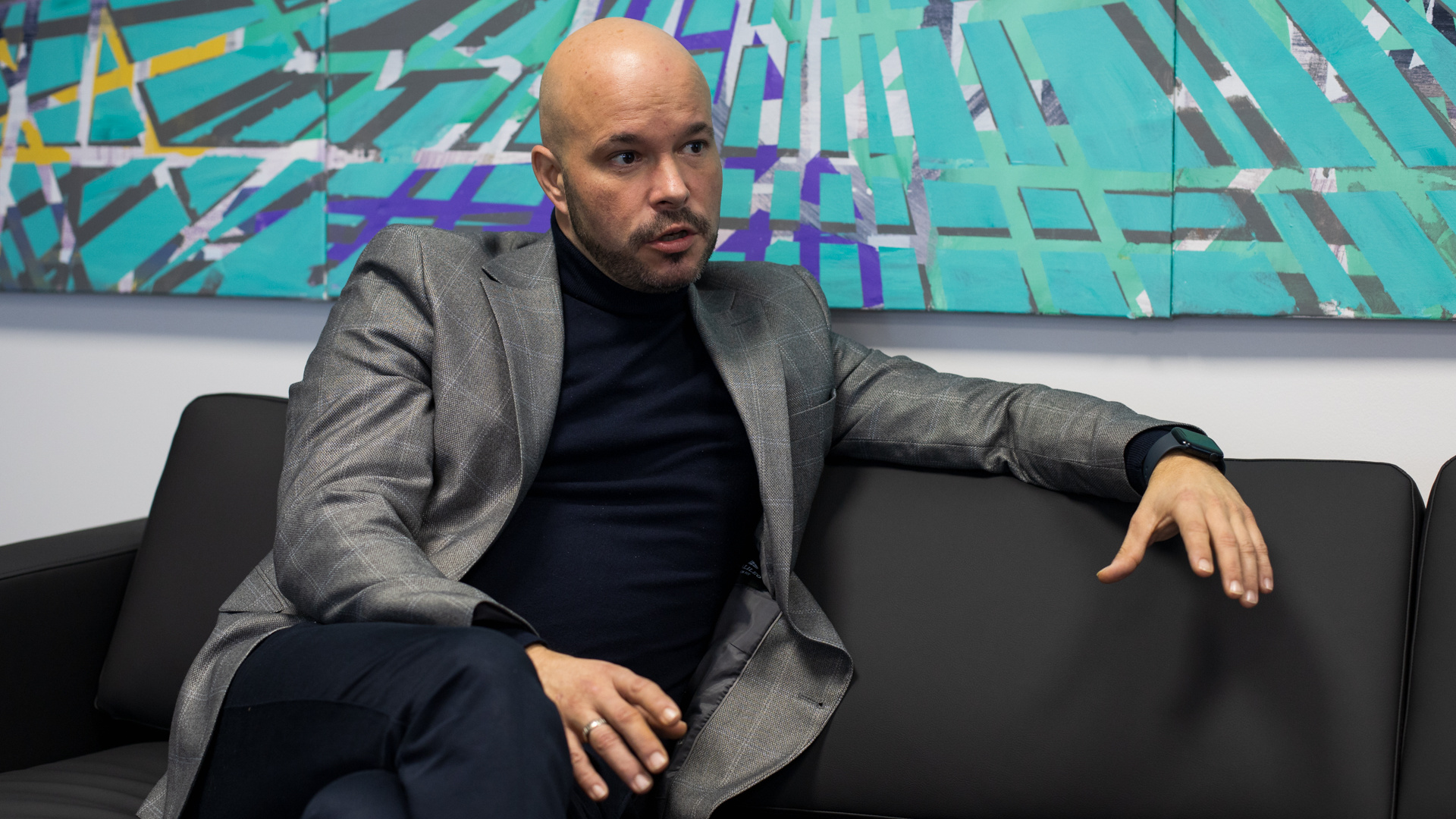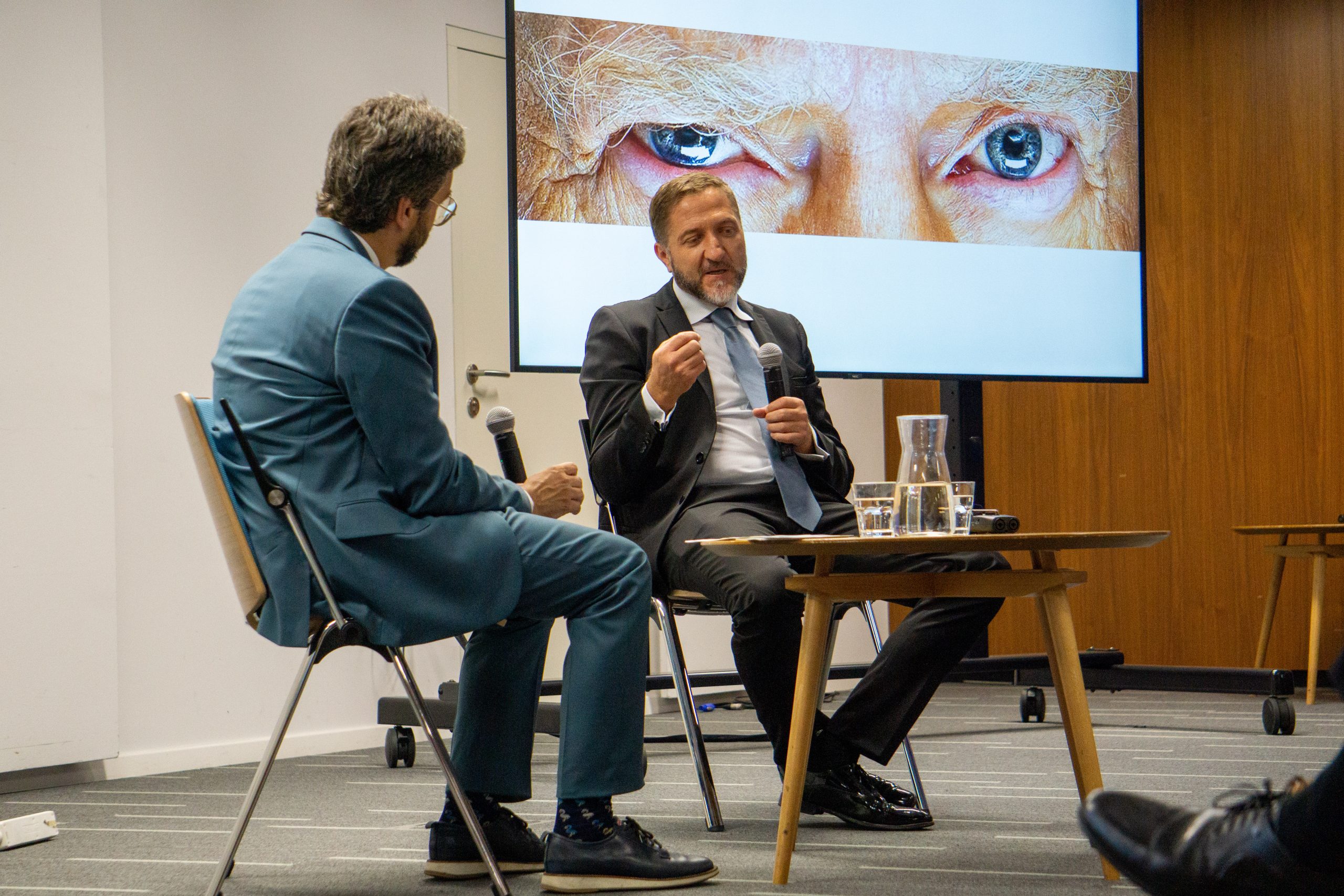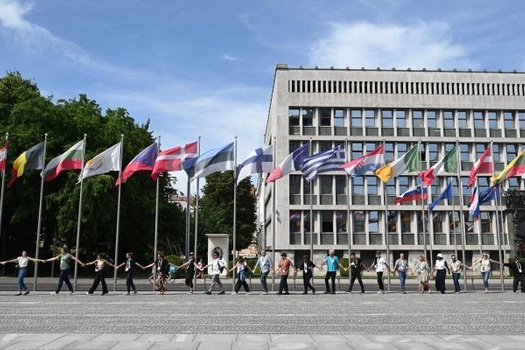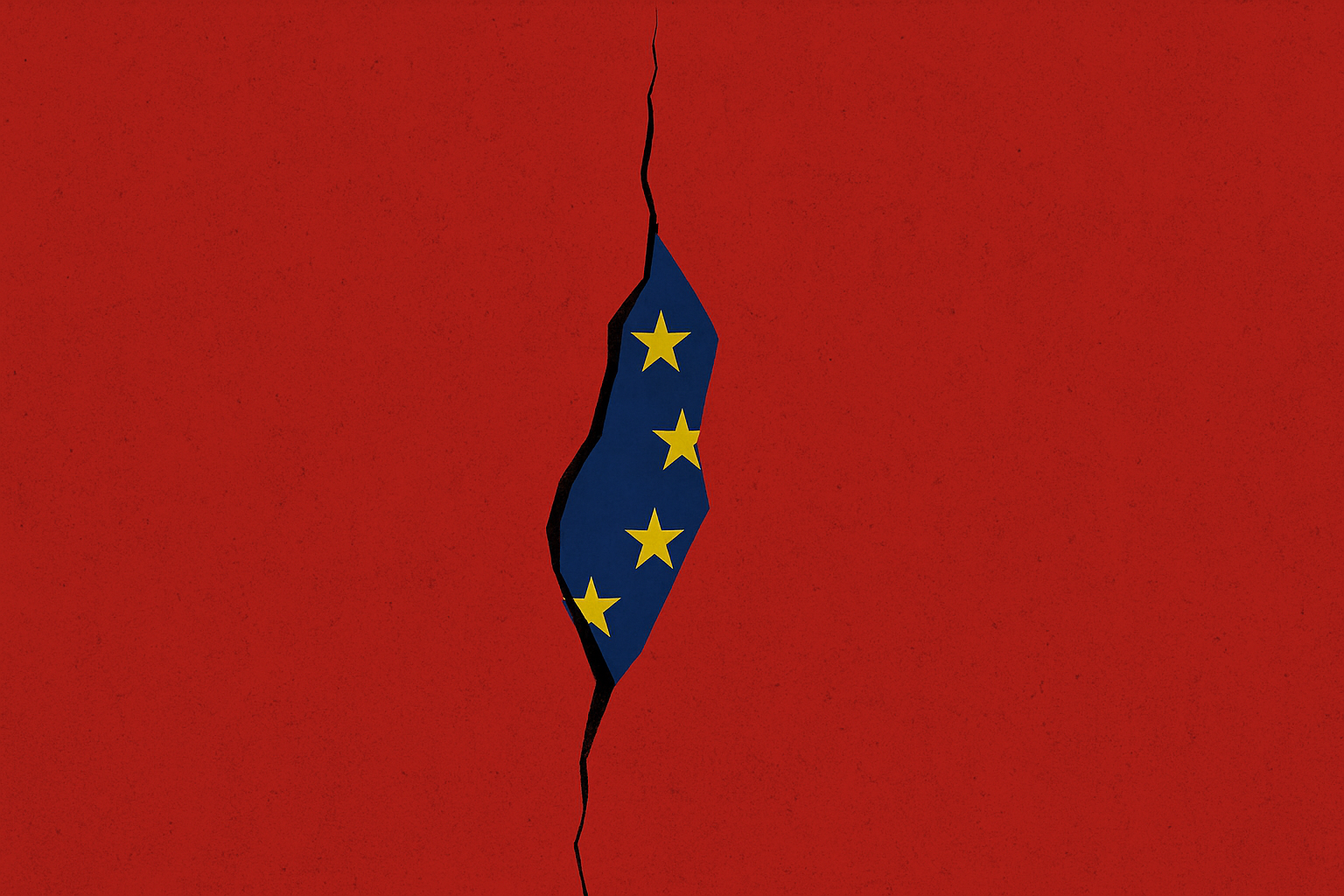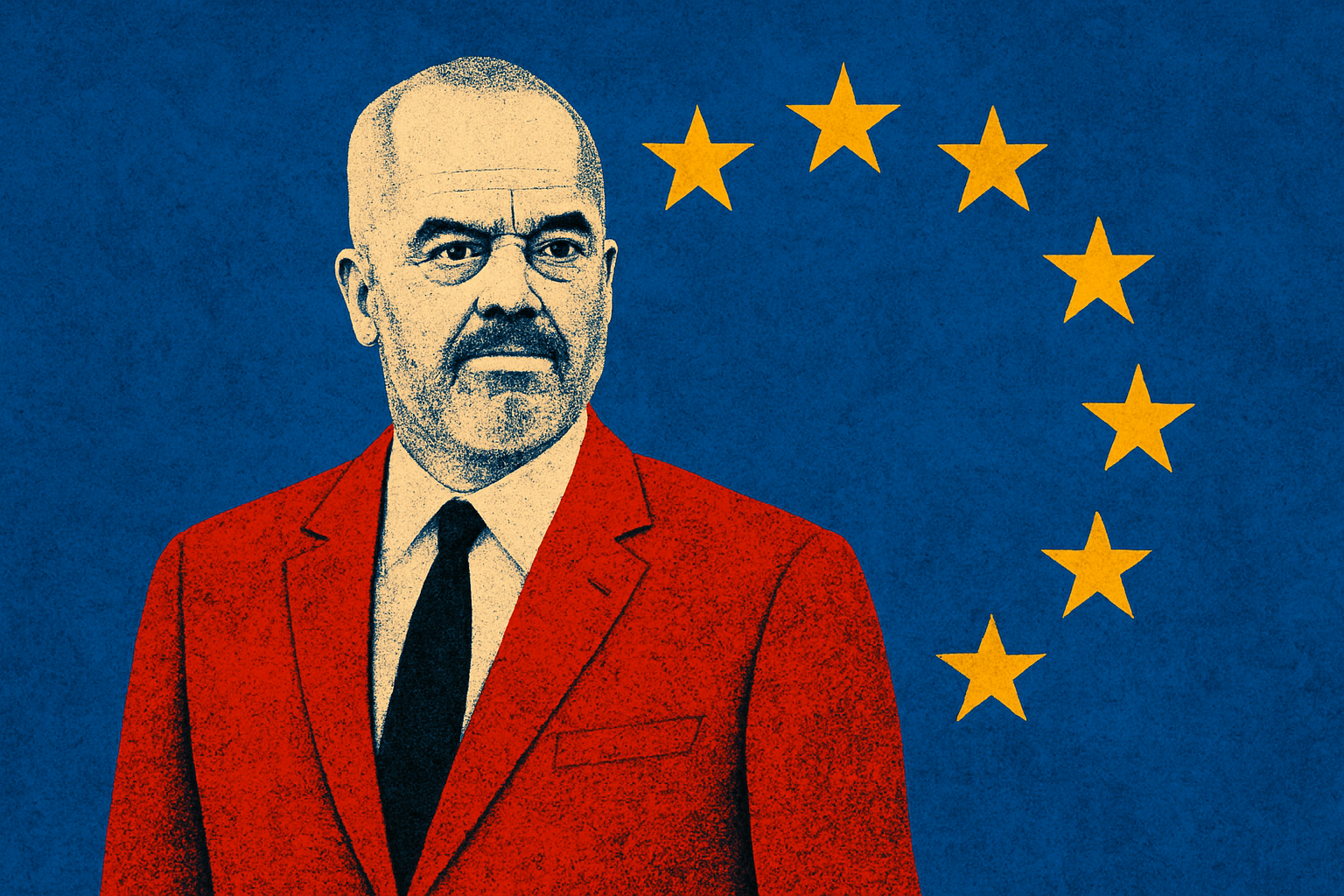Greenovated transition: Slovenia’s sustainable shift
Špela Bizjak & Jan Tomše
JOURNALISTS AT THE ADRIATIC
In this exclusive interview with the Adriatic, Matevž Frangež, State Secretary at the Ministry of Economy, Tourism, and Sport in Slovenia, unveils the country's strategic vision for the future. Focused on the ambitious initiative Greenovated in Slovenia, Frangež discusses Slovenia's commitment to decarbonisation, the cultivation of new industries, and its appeal to high-tech companies. Highlighting the pivotal role of innovation and sustainability, he offers a glimpse into the nation's transformative journey towards a greener and economically vibrant future. He also reinforces Slovenia's dedication to economic integration in the Adriatic region and points to its potential as a European hub for strategic green technologies.
What is your assessment of the current economic climate, globally and in the markets that are relevant and important for Slovenian exporters in the Adriatic region?
It is obvious that we have entered a period of the greatest economic changes in history. These changes are driven by a variety of interconnected shifts – climatic, technological, geostrategic, social. In light of this, it becomes imperative for economies, including Slovenia, to adapt to the unfolding dynamics of the new era.
How do you think this can be done?
The changes we are talking about need certain adjustments in several areas. On the one hand, we must reduce the carbon and energy intensity of our industries. On the other hand, Slovenia’s strategic focus is to rapidly increase its added value. All this aligns with the rise of new technologies, with artificial intelligence being one of the most important drivers of this restructuring. It’s basically a mix of changes affecting all industries.
Our common consideration is how to design an economic policy geared towards positioning Slovenia among the victors of this time. These big changes determine exactly that – emerging winners and unfortunate losers.
Slovenia: innovative developer and trendsetter
“Guidelines for formulating economic policy are defined by various umbrella documents, such as the Slovenian Industrial Strategy. It holds true that some strategic foundations were not laid out at a time when the changes we are witnessing today were not as apparent. After the adoption of the Slovenian Industrial Strategy, events like the onset of the COVID-19 pandemic, the war in Ukraine, and consequently the energy crisis unfolded. During this time, Europe recognised the need for a sustainable, digital transition in the supply of energy, raw materials, and strategic technologies,” emphasises Matevž Frangež.
“At the ministry, we’ve prepared an action plan to increase competitiveness, which we can also call a strategic blueprint for economic transformation. This initiative prompts public debate Slovenia’s ambitions to become a new European hub for the development of advanced and green technologies,” he explains.
“So that we can change from being a competent and reliable supplier today to an innovative developer, especially in the field of technologies, which today largely represent a disruptive element in the global economy – on the one hand, green tech, on the other, advanced technologies such as is artificial intelligence, blockchain etc. Of course, also in several sectors where it appears that Slovenia can be a niche, very important and excellent player – biotech, a small but interesting space sector, food tech, etc.”
The Ministry has an ambitious project called Greenovated in Slovenia, focused on strengthening innovation, developing new solutions, and consequently increasing Slovenia’s broader visibility. What does Slovenia want to be recognised for?
Our initiatives are geared towards making our future greener with eco-friendly solutions – now a universal and ultimate requirement for every business. According to a PwC survey, 50% of Slovenian companies believe that climate change will not have a significant impact on their operations. This same percentage of companies very likely believes they will not be affected by the artificial intelligence. Looking at this pessimistically, it’s a sign that half of the Slovenian economy is not prepared for big changes. On a more positive note, half of the companies recognise how megatrends can influence their business.
The scale of these changes requires adjustments, even in individual industries. Slovenia is strongly embedded in European industrial networks, particularly in the automotive industry, which faces substantial upheavals amid the shift to electric mobility. Slovenia has the ambition to fortify its economy with a greater share of finished products, as well as domestic brands, which will be the outcome of Slovenian knowledge, innovation and design tailored to global demands.
Can you outline the measures under the consideration at the Ministry aimed at accelerating innovation?
In this era marked by a revival of industrial policy, investors are coming to Slovenia, they are interested in how our country, as an EU member, competes with its European counterparts in providing incentives for their investments. To bolster our competitiveness, we must create a predictable business environment. In today’s unpredictable global landscape, Slovenia, given its small size and significant international involvement, must ensure its internal systems are flexible enough to effectively react to the ongoing changes. The goal is to remain steadfast in turbulent times, always act as an internal, compact, and resilient entity, capable of flexibly adapting to external changes.
The three pillars of Slovenia's innovation outreach
1. DECARBONISATION AND UPGRADING THE EXISTING INDUSTRIES
“Slovenia’s economy is above average energy-intensive, primarily due to being a substantial supplier of materials such as aluminium, steel, glass, paper, plastic, and magnets. The production, processing, and customisation of these materials requires a lot of energy. Decarbonising these industries is undoubtedly one of the most important strategic tasks of our time,” warns Matevž Frangež.
“The ministry is preparing Repower EU measures totalling EUR 42m, combined with a mix of refundable resources, as well as a combination of non-refundable and refundable incentives for companies transitioning towards a reduced carbon footprint. What companies produce is equally important – whether they rely on using a lot of energy to produce conventional materials or demonstrate a capability to develop new materials for light weight design and construction. In Slovenia, we know how to produce effective solutions. Slovenia’s strategic ambition must be to move up the value ladder and strengthen its development competences.”
2. NEW PRODUCTS AND NEW INDUSTRIES
In this context, we focus on a very dynamic and diverse start-up ecosystem, uniquely organised into niche domains. “Slovenia has groundbreaking technologies in a number of fields, from mobility to bio tech – the latter stemming from the highly developed pharmaceutical industry. Worth to mention other examples as well, such as Juicy Marbles in the food tech sector and Elaphe in the automotive industry which introduced engines with a new, revolutionary architecture,” Frangež highlights.
“Ensuring good conditions and connectivity of the startup ecosystems imperative for the development of ground-breaking solutions. Additionally, Slovenia hosts Podim, one of the most important startup conferences in this part of Europe. At the same time, we have to make sure that we strengthen investments and financing, attracting venture capital, which is almost completely absent today,” says Frangež. He underscores another vital measure: “We want to activate more private capital through the Slovenian Enterprise Fund to make it easier for startups to obtain funds on the capital markets, which are too shallow in Slovenia. In this regard, our Ministry actively cooperates with the Ministry of Finance to design the capital market development strategy. Our goal is to develop a capital-driven mechanism that not only helps in the establishment and growth of companies but also propels them towards greater scalability. This, in turn, plants the seeds for emerging industries that will propel us into a new era.”
3. ENHANCING SLOVENIA'S APPEAL FOR HIGH TECH
In the pursuit of making Slovenia more appealing to global high-tech companies, the focus is on measures such as increasing research and development funding and implementing an ambitious stimulus policy. »If we want to become a European hub for innovation, we must enhance the appeal of our business environment for foreign labour, particularly high-tech personnel – here, above all, better net salaries for top talent. The intricate and time-consuming procedures in obtaining documentation for foreign workers also cannot be overlooked,. Challenges await us when it comes to placing investments in the space,” says Frangež. As he explains, it is a connected set of challenges that they want to tackle with the action plan, kickstarting the process with an initial phase involving public debate. “Slovenia lacks a social consensus on what we want to become as a country. Economic policy is the fundamental to our country, and we want to contribute to shaping this consensus through the implementation of the action plan,” he emphasizes.
Could we reflect on the recruitment of the high-tech personnel? These are talents that deliver substantial value through their expertise and groundbreaking solutions.
Through an extensive tax reform, our focus needs to be on alleviating the burden on labor while simultaneously adjusting property taxation upwards. Indeed, if the ambition is to position ourselves as a new European hub for innovation, maintaining low property taxation is not a magnet to help us achieve this objective. On the other hand, the magnet is a more competitive taxation of labour, recognising its pivotal role as a key development factor in generating innovation, knowledge, and creativity.
The action plan I’m referencing is precisely aimed at this coordination: to engage in concrete discussions about our economic vision and related measures. On one front, these measures are the responsibility of our ministry and we can feasibly realise them independently. On the other front, it involves measures that must be achieved through an interdepartmental approach if we want to realise the mentioned vision. But first we need to know where we want to go, so that we can then integrate the various measures into a whole that will effectively propel us towards achieving our goal.
Within the ministry, what solutions are being considered to speed up the processes for obtaining permits for highly qualified foreign individuals?
While our ministry isn’t primary responsible for key licensing functions, we are very interested in helping to make this important transition. We recognise talent is a pivotal driver for innovation and technological advancements – we proposed a re-evaluation of the “fast track” system for high-tech profiles some time ago. Under the proposed procedure, upon the submition of a complete application, a permit to work and reside in Slovenia is automatically issued. Subsequently, the administrative body would validate or revoke the permission based on whether the stipulated conditions are met. This would enable better access to global talent in the economy, while maintaining the necessary safeguards in the system. Notably, a comparable system was effectively implemented by Germany last year, which recognises, as we should all, that labour is one of the key inputs in the economy.
Countries compete with each other, so we need to strengthen our competitiveness. And Slovenia holds quite a few advantages: a safe community, fantastic conditions for a high quality of life with exceptional opportunities for contact with nature, sports, and recreation, as well as a solid education system, inclusive and accessible universities and globally competitive research institutes. Our strengths extend to an excellent location, beautiful natural landscape, not to mention that we are a ‘wine and culinary superpower’. This network of advantages is crucial to position ourselves as a green destination for life and work. To this we must add friendly, fast procedures and implement a tax reform that will alleviate the burden on labour.
How would you evaluate the position and role of Slovenia in the Adriatic region?
Undoubtedly, Slovenia’s path serves as an example for many in the Adriatic region. As a country, we have largely successfully navigated the processes and challenges facing the region. The goal is clear: prompt and complete integration of the Adriatic countries into full EU as soon as possible. I am confident that current geopolitical and geostrategic circumstances will make it possible.
In Bled we finally agreed on the timelines and concrete strategies to stimulate the region’s economic integration into the EU internal market. We now have a destination and a clear path. The objective is to increase investments and improve economic infrastructure in the Adriatic region, a goal Slovenia is committed to supporting, both politically, with a lot of knowledge and experience about opportunities in the EU internal market, and practically through the direct engagement of our companies, which are strongly present in the region, particularly in banking and insurance.
From a political-security and civil society point of view, how significant is the progress and inclusion of the Adriatic region in European integration?
The economies of the Adriatic region will do better, while the risk of potential conflicts will diminish. I truly believe in the potential of this region. I am convinced that we are significantly more complementary than competitive. As a society, we share a certain affinity with this area, embodying a blend of German precision and engineering brilliance on one side, and a Mediterranean laid back attitude on the other – a reminder that life extends beyond work.
To conclude: what are the key resources that Slovenian companies need for a green, sustainable transition?
I would emphasise the more efficient use of resources, including energy, and the creation of new value that will push us further up the supply chains. Take, for example, eco–design, which designs products to enable their recyclability and extended lifespan. At the highest level, we have the Net Zero Industrial Act serving as the European Union’s strategic framework that defines how to utilise and enforce strategically important technologies necessary for the green transition. There is a whole range of strategic technologies being developed in Slovenia, from wind technologies to carbon capture storage, heat pumps, and nuclear technology. Today, Europe is significantly dependent on China for many of these technologies. This underscores an opportunity for Slovenia to step in with its knowledge and products as a provider of innovative solutions.
THE ADRIATIC
This article was originally published in The Adriatic: Strategic Foresight 2024
If you want a copy, please contact us at info@isr.si.

